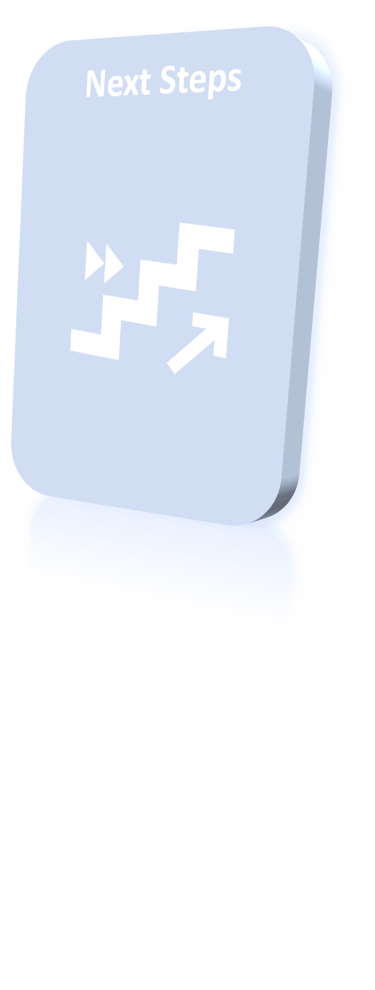In-Store Mobile App
My roles:
UI/UX/Motion Designer
Product Designer
UX Researcher
Prototyping
Interaction Designer
Case Study:


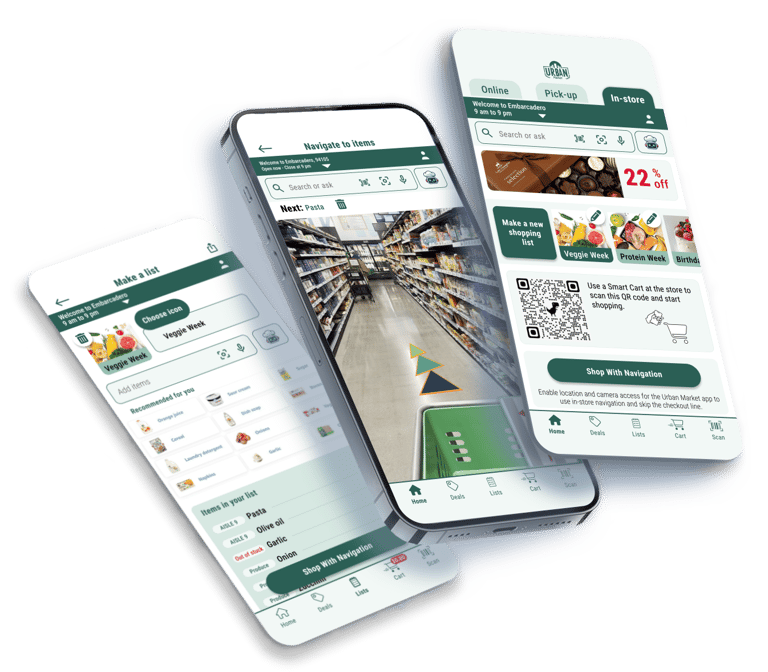

Urban Market Grocery Store - Personal Project
Duration:
3 months
Overview


Problems
Solutions
Timely shopping list creation and population
Locating items
Long checkout lines
Boring process for younger generations
Typical, unrelated offered deals
AR navigation guide
AI-powered personalized deals
Multi-modal search and AI assistant
App-based self-checkout
AR glasses experience
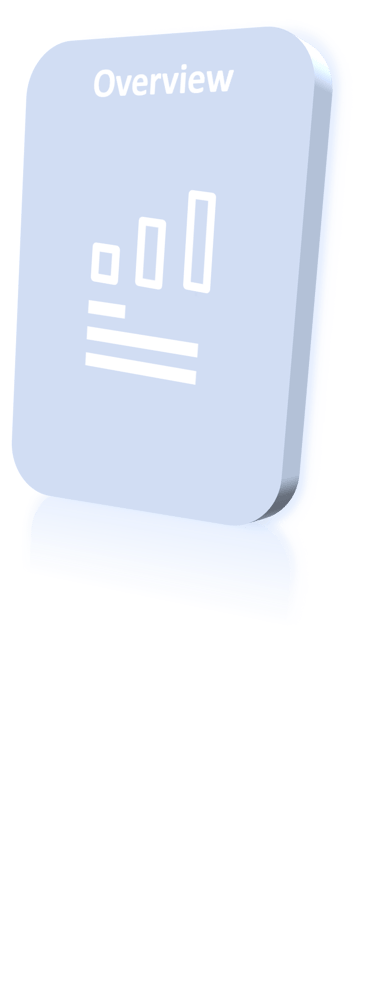

Empathize
Conducted interviews with 10 SF-based in-store shoppers
Users Problems:
Frustration with locating items
Long checkout lines
Lack of inspiration for healthy meals
Grocery shopping is boring and time-consuming
Business Objectives:
Increase user satisfaction, user engagement, and revenue
Reduce operational costs & checkout time
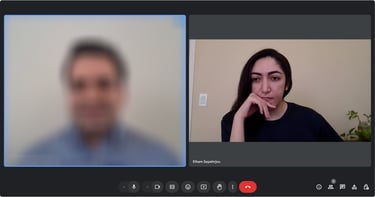

Goals:
Users can locate items easily
Efficient shopping process
Personalized services & deals
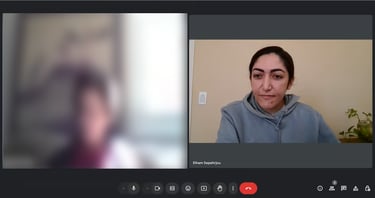





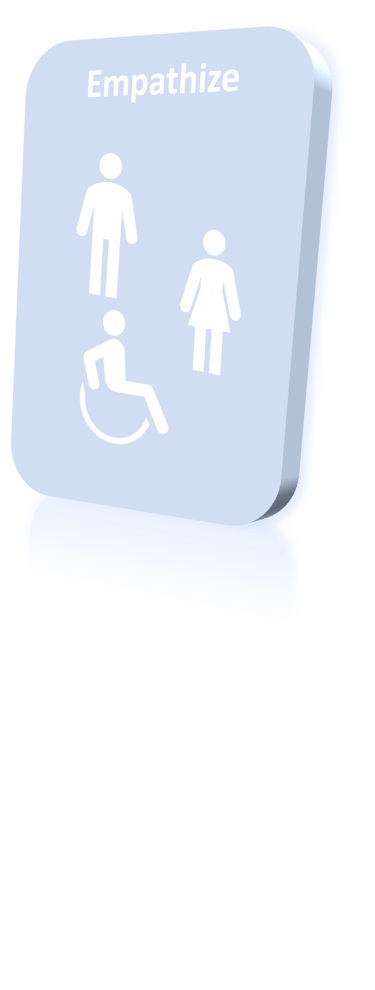

How might we help customers locate items more quickly to save time during their shopping trip?
How might we streamline the checkout process for shoppers so they can have a faster and smoother experience?
Define
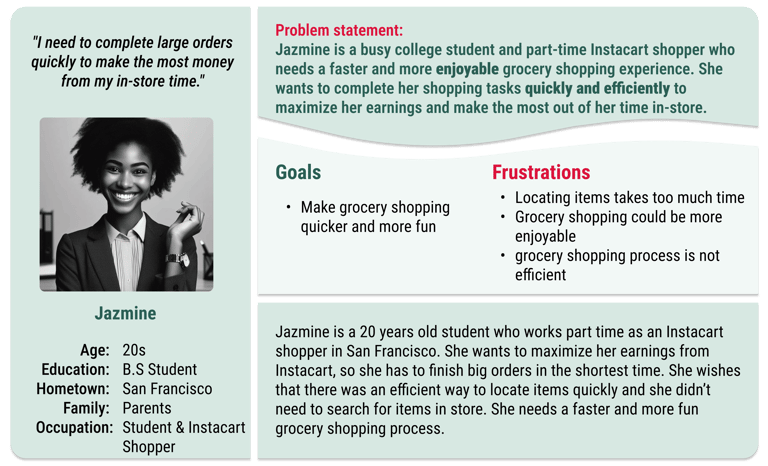

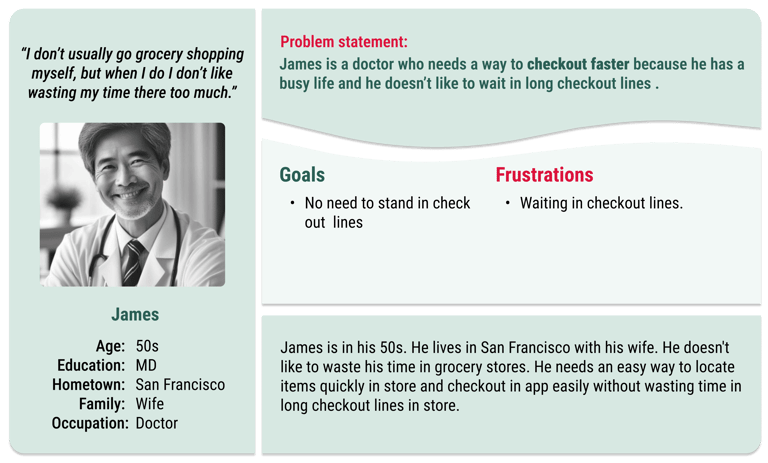



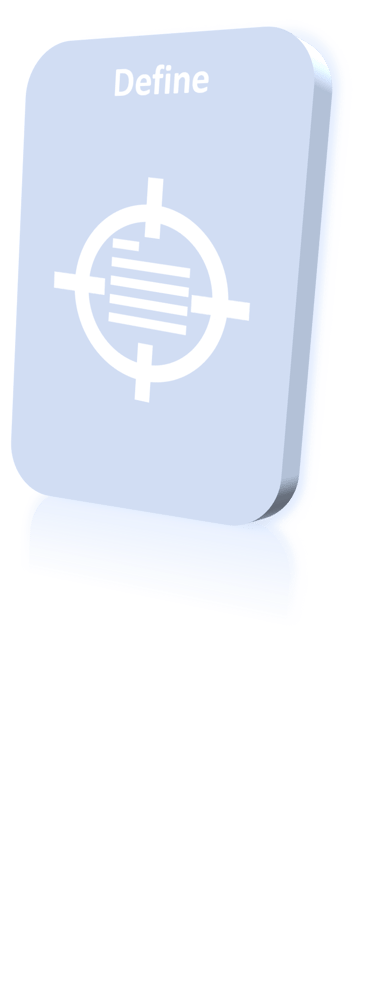

Competitive Audit:
Walmart, Target, Erewhon, Amazon Fresh, The Market
Brainstormed Solutions:
AI-assisted shopping list management
AR navigation
App-based scanning items and checkout
Visual/Voice search
Smart cart integration
Prioritized features using the Impact/Effort matrix
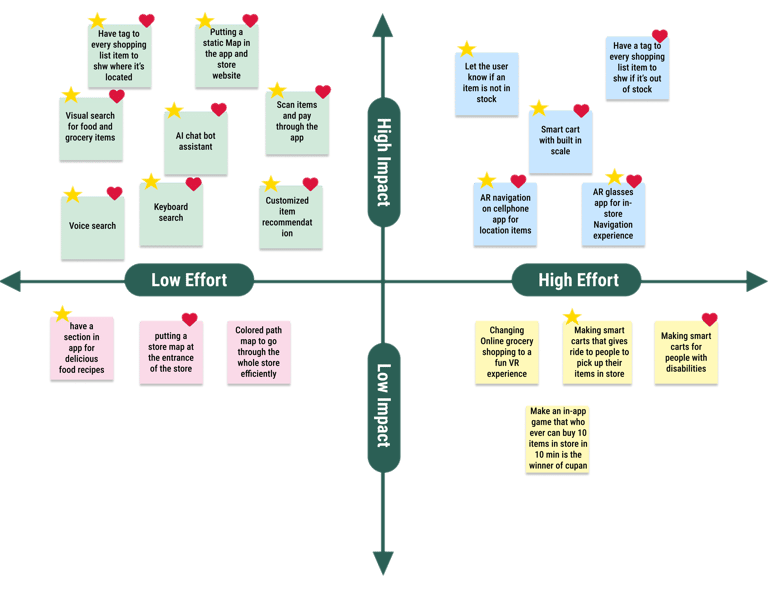



Ideation
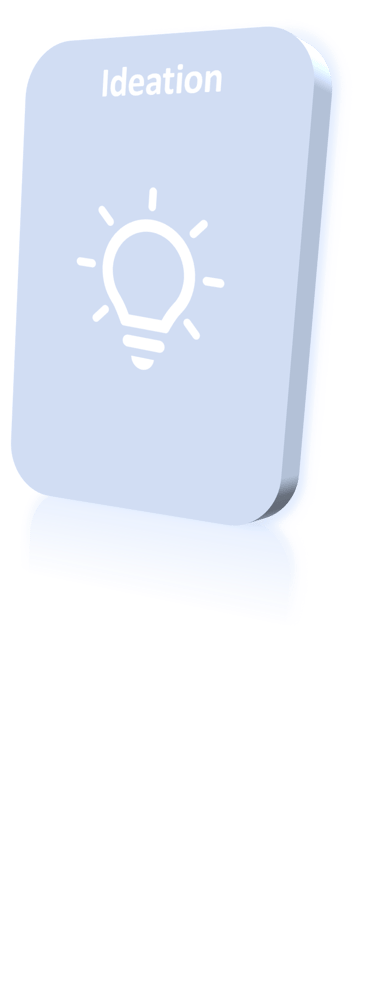

User Journey Mapping:
Identified key touchpoints & pain points
User Flows & Storyboards:
Visualized task flows (locating, scanning items, & checking out)
Wireframes:
Low-fidelity sketches of different versions of key screens
Low-Fidelity Prototype:
Visualized core user flows, including shopping list creation, in-store navigation, and checkout.


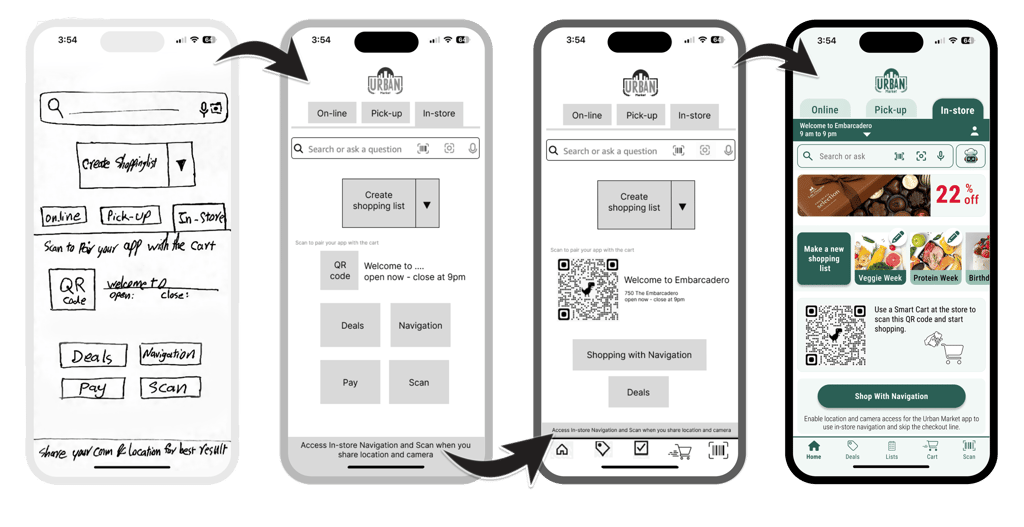

Homepage Evolution
Design
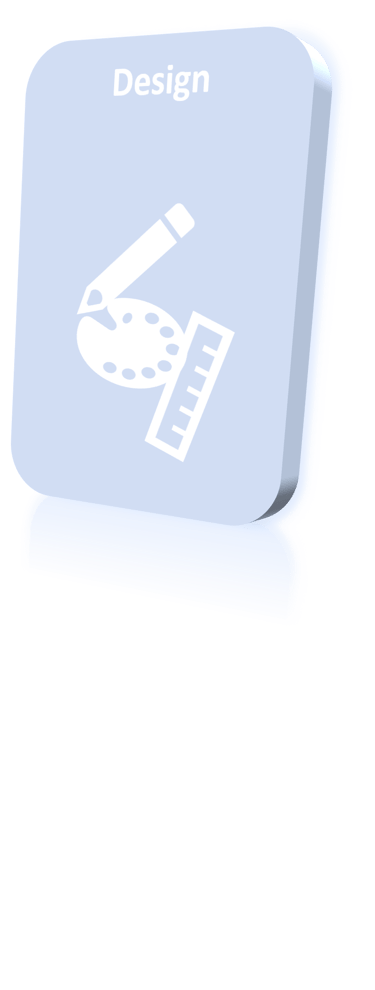

Design System:
Created UI components ensuring consistency, brand conformity, and accessibility.
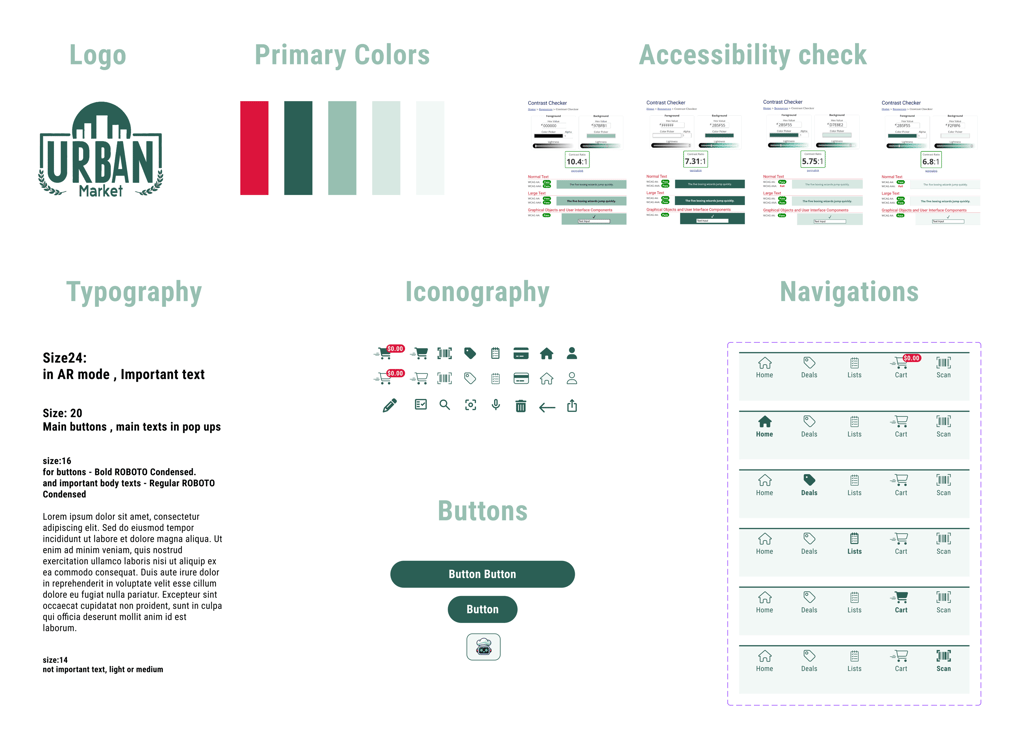



Design


Homepage
ChefBot voice mode
ChefBot chat mode
Search result
Shop with navigation
Cart
Mockup Samples:
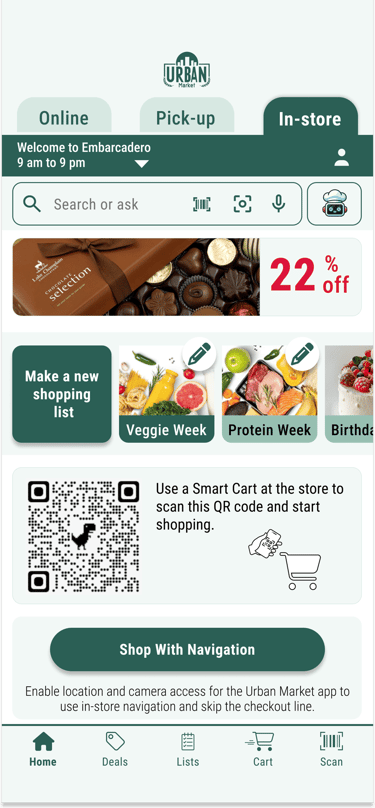



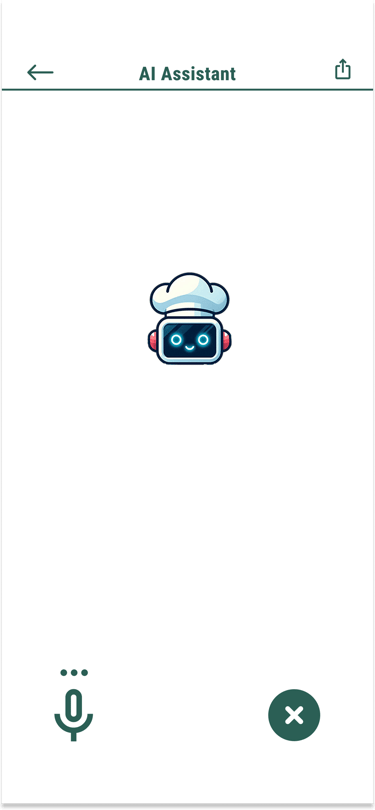



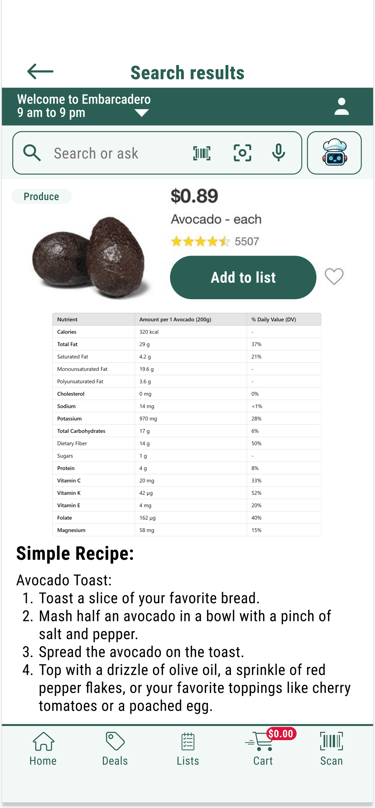

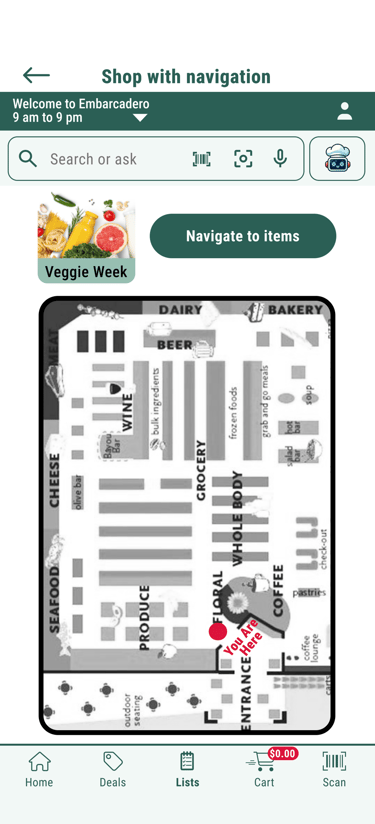





Make a list
Design


High-Fidelity Prototypes:


Onboarding User
Flow 3: Returning User
Flow 2: Returning User With Unfinished Tasks
Flow 1: Onboarding User
Design


AR Navigation and Checkout Features
AR guides the shortest route to collect items.
Users scan items, then check out and pay via the app.
Multi-modal Search
Via photo (visual)
Via voice (audio)
Via barcode scanning
Via keyword
AI assistant (interactive multi modal)
Personalized Deals
Deals adapt to user preferences and habits.


Key Features:
Design


AR glasses app extension
Expanded the app to AR glasses for hands-free scanning and in-store navigation.
Enabled quick item scanning, cart additions, and guided navigation with AR triangles.
Allowed seamless switching to the mobile app for checkout, enhancing convenience and usability.



Design


Test & Iteration
Conducted 5 rounds of usability testing with iterative improvements
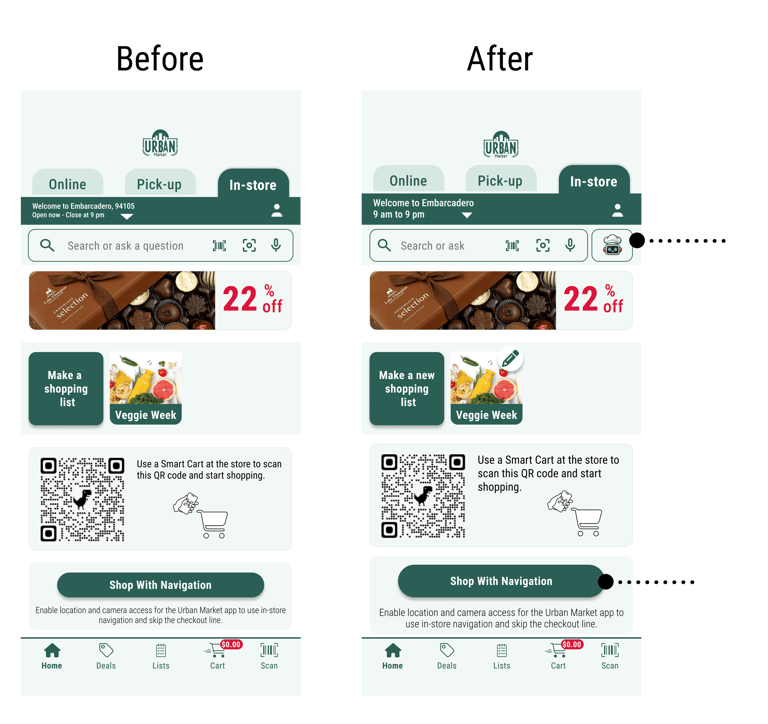



I added a dedicated button for the AI assistant, branded as "ChefBot," to make it more accessible and prominently positioned for user convenience.
I increased the button height to improve its accessibility and usability and make it easier for users to click.
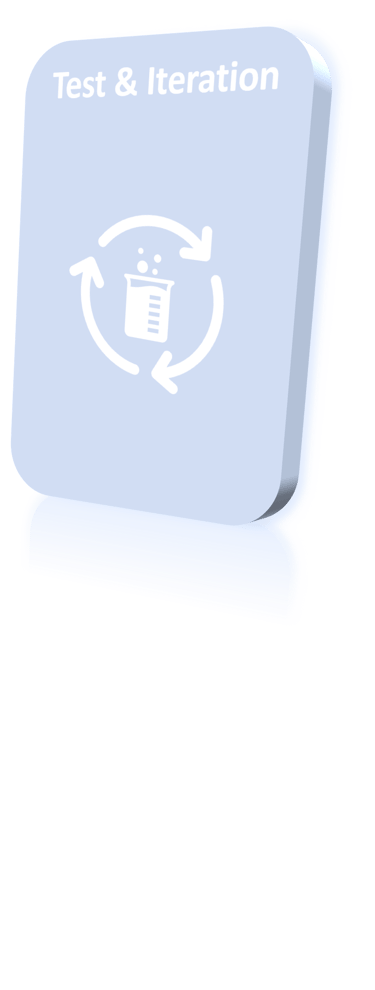

Outcomes
The success of the design can be summarized as:
Increased efficiency
Positive user feedback on AR navigation and AI assistant (i.e., Chefbot)
Prototype simulates full shopping journey
Scalable to other retail stores (e.g., Walmart, Target, Instacart)


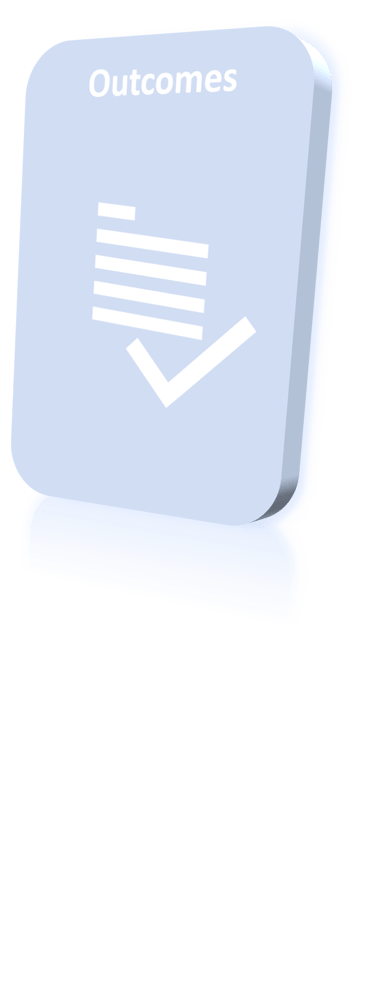

Conducting A/B testing to evaluate design effectiveness.
Collaborating with stakeholders to review and gather feedback on the design.
Preparing detailed documentation and assets for engineering handoff to ensure smooth implementation.
Next Steps


